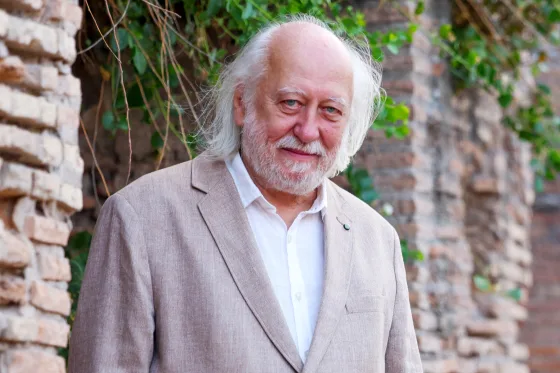
Hungarian novelist László Krasznahorkai has been awarded this year’s Nobel Prize in Literature, earning global recognition “for his compelling and visionary oeuvre that, in the midst of apocalyptic terror, reaffirms the power of art.”
Reacting to the announcement in an interview with Swedish broadcaster Sveriges Radio, the author said he felt “very happy, calm and very nervous altogether.” He received the news while visiting Frankfurt after being informed over the phone by the Swedish Academy.
Krasznahorkai, born in 1954, becomes the second Hungarian to receive the Nobel Prize in Literature, following Imre Kertész’s win in 2002. The award will be presented to him in December at a ceremony in Stockholm.
The acclaimed writer first gained prominence in 1985 with his debut novel Satantango, a postmodern exploration of decay and despair that established him as a major voice in European literature. The Swedish Academy hailed the book as “a literary sensation.” Satantango was later adapted into a seven-hour black-and-white film in 1994 by Hungarian filmmaker Béla Tarr, cementing its cult status in world cinema.
Over the decades, Krasznahorkai has continued to produce deeply philosophical and haunting works, including The Melancholy of Resistance (1989), War and War (1999), and Seiobo There Below (2008). His 2015 Man Booker International Prize and 2013 Best Translated Book Award for Satantango further underscored his literary influence.
The Nobel committee described Krasznahorkai as “a great epic writer in the Central European tradition that extends through Kafka to Thomas Bernhard, characterised by absurdism and grotesque excess.” Krasznahorkai himself once described his writing as “reality examined to the point of madness.”
Raised in a middle-class Jewish family, the author drew much of his inspiration from his experiences living under communism and his extensive travels after moving to West Berlin in 1986. His 2021 novel Herscht 07769 — praised for its striking portrayal of social unrest in pre-pandemic Germany — follows Florian Herscht, an orphan adopted by a neo-Nazi who works as a graffiti cleaner. The book, described by The Guardian’s Tanjil Rashid as “bleak from start to finish,” paints a vivid picture of societal decay in a small German town.
In his most recent work, Zsömle Odavan, Krasznahorkai returns to Hungary through the story of a 91-year-old man, Uncle Józsi Kada, who secretly claims the throne but has vanished from public life. The novel combines satire and existentialism, hallmarks of the author’s signature style.
The Nobel Prize in Literature, first awarded in 1901, has now been given 118 times — with only 18 women among its laureates. Last year’s winner, South Korean author Han Kang, was honoured “for her intense poetic prose that confronts historical traumas and exposes the fragility of human life.”
Krasznahorkai’s win adds another remarkable chapter to Hungary’s literary legacy, celebrating a writer whose darkly visionary works continue to probe the boundaries between art, chaos, and the human condition.
Melissa Enoch



